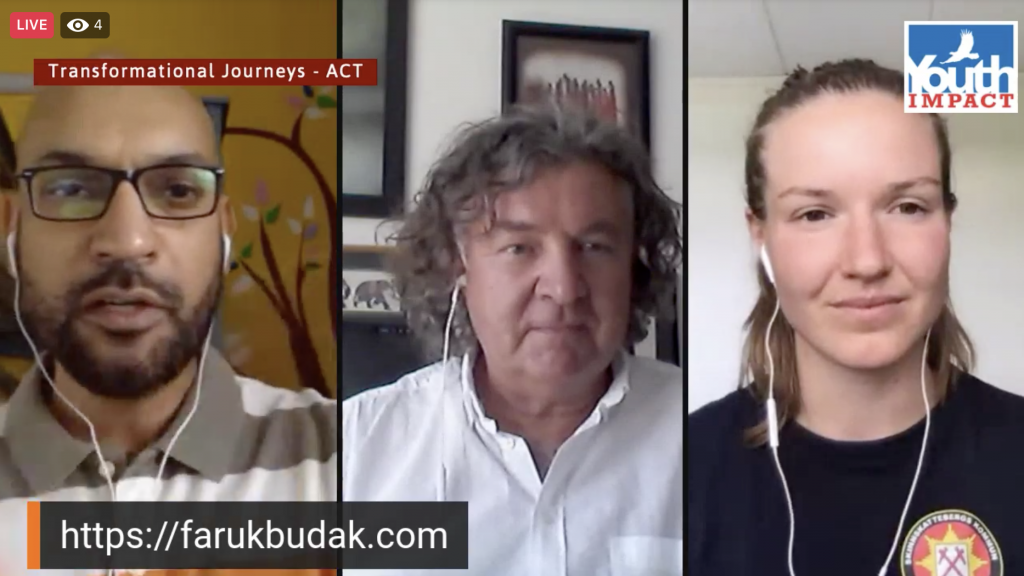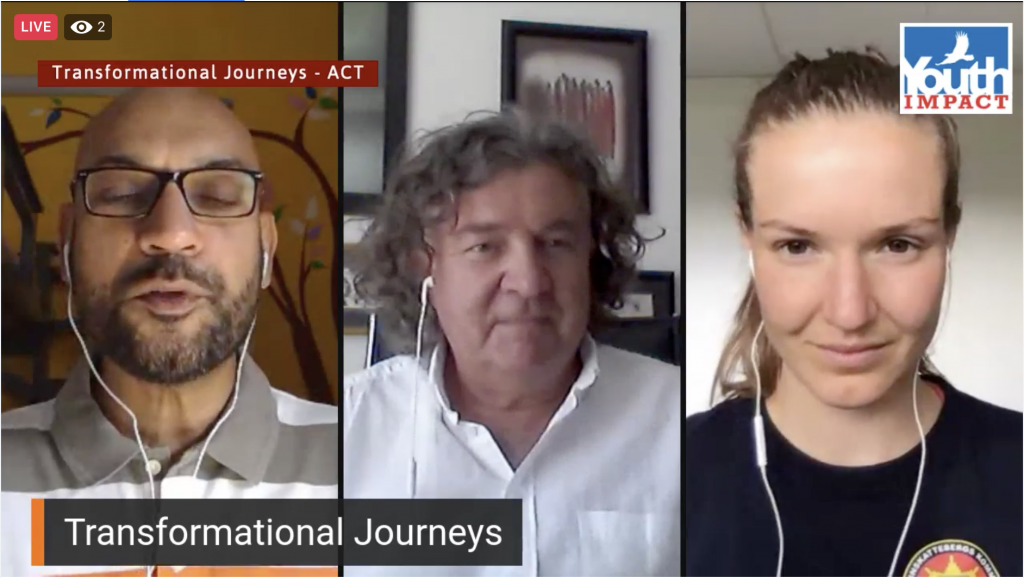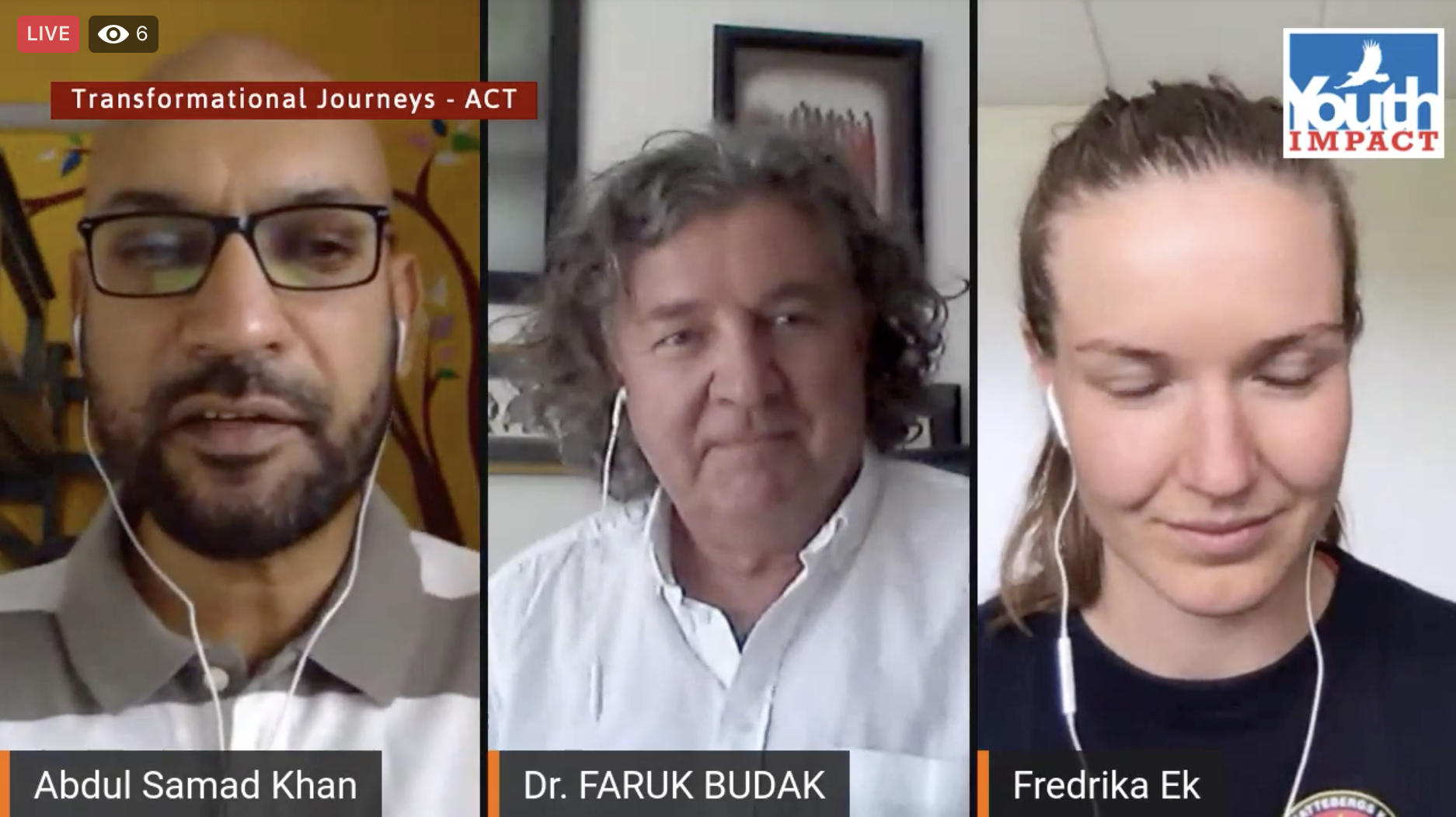Your personal and professional introduction
I am a retired army colonel having A DEGREE OF Bachelor of Science in Civil Engineering (CE), Master of Science degree in CE and PhD Degree in Industrial Engineering.
I gave different engineering courses in graduate and postgraduate programs of state universities in my country in 1990s and 2000s.
Then, after twenty-five years of military service, I left İT. Immediately afterwardS, I went on an epic journey through Asia and Africa backpacking alone – FOR 14 MONTHS
What makes this trip very special IS that this was the first time a Turkish backpacker traveled alone from Cape Town, the southernmost point in Africa, to Cairo in Egypt in the North of Africa, before continuing on to Istanbul without any breaks.
I am the first Turkish backpacker completing the famous “Cape to Cairo” road .
And also I am a “role model” for most Turkish backpackers.
I have two books written in english and they are on sale on www.amazon.com.

WHAT AM I DOING PROFESSIONALLY?
FOR THE last 15 years, I AM LEADİNG some special tours to specific off-the-beaten-track destinations in Asia and Africa, mostly to indigenous tribes in Africa and wildlife safaris,
and WRITING for some monthly Turkish travel magazines.
I am the owner of a travel company.
What does it mean to be the first Turkish to travel from Cape to Cairo?
To be honest, traveling in Africa is more difficult then in Asia. You can find and meet so many travelers in Asian countries but this is not the same in Africa. Just a few people.
After the equator line in Kenya until Egypt, the road conditions are not so good and travel times are too long.
I traveled on the top of a truck full of cows almost 13 hours until Northern Kenya. Going from the capital city Addis Ababa to a city in North Etiophia takes almost two and half day by bus. It was completely forbidden to drive after dark. I had to look for a hotel in each night-stops.
There are a lot of examples that traveling in Africa as a backpacker is not so easy. That’s why there were just a few foreigner traveler on the road.
I am very happy that a Turk has been able to complete the Cape Town-Cairo, even the Cape Town-Istanbul route. I wish there were more Turks on this route and that the words “Turks don’t come here” or “you are the first Turk to eat at this restaurant, the first Turk to stay at this hotel” wouldn’t be said any more…
What triggered such a huge contrast from “Industrial Engineer” to a ‘Travel enthusiast’?
As I was getting ready to leave a twenty-five year long career as an engineer in the army and transitioning to civilian life, THEN I started planning a long-term project which would need a low budget but would still satisfy my desire to visit and see all these places.
I felt I may never have the chance to take such A long vacation in my new life. I wanted to completely prevent this feeling from staying hidden deep in my soul, bothering me from time to time. So, I went, I visited, I saw…
May be I left my career early. Even though I had the opportunity to stay in the army for another ten years or so, the questions I was asking myself were:
“will I have the energy to realize this project AFTER ten years?
Will I be able to overcome the difficulties of such a trip?
Will I be really happy while I am constantly postponing doing something?” The answers were, of course, “No”. and thats how ı triggered myself for this journey.
Hobbies are as important as a person’s LIFE.
There is a Dutch proverb that says “the happiest person is that who has his hobby as his work”.
Now, my hobby is my Professional job also. I am just a simple independent traveler but at the same time, owner of a travel company organizing safari, culture and tribal tours to off-the beaten-tracks in three continents, Asia, Africa and Latin America..
Tell us more about ‘9 gates of Asia’, what are 9, and what’s inspiration behind this?
The phrase “early civilizations” is usually related with images of Egypt and Mesopotamia, and their pyramids, mummies, and golden tombs.
But in the 1920s, a huge discovery in South Asia proved that Egypt and Mesopotamia were not the only “early civilizations.” In the Indus River plains located in Pakistan, archaeologists discovered the remains of a 4,600 year-old city.
Two ancient cities, Harappa and Mohenjo-Daro (both in Pakistan, in Indus valley) is just 5000 years old.
Maybe you know, archeologists discovered a 12.000 year old stone temple, Göbeklitepe, in Southeast Anatolia within the border of Turkey, my country, in Middle East and Middle East is a part of Asia also.
Until today there were so many civilizations on this planet, but if we ask themselves, where The cradle of these civilizations is, the answer will be Asia.
In ancient times, there were defence walls around the cities and towns to protect themselves from the enemy attacks. And there were some Gates on these walls to enter the city. If Asian continent itself is a surrounded city, the Gates are the countries to enter inside. That’s why I called my book NINE GATES oF ASIA.
It’s about my travel in 9 different countries in Asia lasting 6,5 months

You have beautifully combined ‘art of travel’ with ‘project management’ and ‘Self development’, please tell us what’s the relationship between these three?
Very good question. Thank you very much.
According to me, travel is NEİTHER just having a good time NOR just a sightseeing. My travel philosophy includes two important aspects.
First of them is some measurable travel objectives plus outcomes and
secondly, interaction with local people as much as possible, maybe in a ultimate level but not within city limits, in the countryside and maybe in the wilderness.
For example;
Maasai is a WELL-KNOWN tribe living in Kenya and Tanzania close to the border between them.
I did a seven-day trek in Maasai lowlands. Then, I lived almost two weeks in a remote Maasai village as a guest of maasai lady who we have met during this seven-day trek and she is still a elemantary school teacher in a village very close to the World famous wildlife Reserve Masai Mara.
This experience gave me too much inspiration and information about the tribal life in Africa also. Most of the tourists see them in a dance show just less then 15 minutes during the dinner in the lodges in Game reserve, but I lived them together, I ate them together, I took a shower with them together in a river (Talek) full of crocodiles, I slept with them in the wilderness under the stars. This is totaly different style of travel.
Now, lets look at from the point of Project management. Please dont forget that everything you will do is a kind of Project and your travel plans also, according to 4th generation PM Philosophy.
I planned every step of this journey by means of some Project managemet techniques such as time management, Cost management, risk management, procurement managemet, Stakeholders management and ı wrote all these plans in my third book.
But you know, nothing ever goes as planned.
If you are able to deal with known risks, how to manage them, your Project will definitely go on perfectly. For unknown risks that I encountered during my long journey, I developed contingency plans efficiently and timely.
At the end of Project, the amount of failure in planned time was just minus 5 percent. Total Project duration was 14 months but I had to wait for Tanzanian visa in Zimbabwe almost 28 days doing nothing. Therefore the real Project completion duration was 14 months and 21 days, minus 5 percent which is easily acceptable ratio.
About the budget,
the planned value of 14 month Project was just 10.000 US$, fortunately total completion budget was less then this amount with a 3.5 percent variance.
The third main factor for analyzing a Project failure or success is scope. The number of UNESCO World Heritage Sites in my itinerary was the scope factor and the variance from this objective was just minus 6 percent. I couldnt visit some of them beceause of safety problems and seasonal weather İSSUES.
Your best and the most challenging experiences during travels?
There was a civil war between Maoist Guerillas and the government forces in Nepal at that time. And it was too dangerous to travel during nights. Our bus had to wait for the other buses to make a convoy protected by armed forces from the Indian border to the capital city Kathmandu.
Another problem was in Zimbabwe. The former President Mugabe said “Africa back to Africans” and his civil forces were attacking to the farmyards of the white residents. There were shortage of diesel and food. Therefore, it was too dangerous to travel in Zimbabwe also, there was a unofficial curfew during the nights and I had to wait almost 4 weeks for my Tanzanian visas in this country. They were the worst days of my tour.
Another conflict was in Sudan. You know they have separated as North and South at the end of a civil war. I had to choose a very long itinerary close to the Red Sea to avoid the conflicted areas, travelling with trucks in open air all day long, not in AC bus.
But these were easily forgotten.
But the more challenging event From those is about my transformation.
A kind of self-development
The most important thing I learned in a Buddhist monastery is the words, phrase, ”Don’t create Sankara.” Sankara–Sankara in Pali language, Samskara in Sanskrit language–is a very broad concept used to describe all negative acts and thoughts, even the negative breath let out into the air. The most important principle in our life is to avoid creating Sankara. That’s the essence of the concept that has brought a different aspect to my life, and radically changed my inner dynamics . . .
a very simple but important detail.
I think this is the most difficult battle then all the issues and it will last during all my life.
Travel teaches a lot, please tell us more about your transformational experiences?
The most important thing I knew was that the “me” before the journey was not the same “me” who returned to home at the end.
This was not just a long trip to see different places but a spiritual journey with an important mission.
“How will the things I see be reflected in my inner being?
What are the things I will discover in my inner self?”
These were the questions at the center of the sense of wonder and curiosity.
Despite the negative warnings of all my friends, I was ready to face any kind of problem I might encounter.
I firmly believed that any problems would be tiny steps that needed to be overcome during my spiritual growth.
My experiences throughout this journey helped me to look at life from a very different perspective;
to learn how unimportant all the materialistic values that entrap us in our daily lives are;
how important it is for a person to believe in themselves,
how important to listen to one’s inner voice;
and how each of us are such powerful beings.
Would you advise young people to go out and travel? Why?
Definitely yes,
Eveything is rapidly changing in this small planet.
For example Vietnam -which is one of my favorite countries in Asia – is not the same Vietnam I have visited for the first time in 1999. The tribes living at the north, their costumes, their life-styles are also changing in this modern world.
If you have any desire in your heart to see a specific place, please go as early as possible, because it s changing dramatically and what you will see will be beyond your expectations.
Ibn Battuta, a 13 century Muslim traveler and author says that “Travelling – it leaves you speechless, then turns you to a storyteller.”
Augustine of Hippo, one of the highest religious official in North Africa of Roman Empire who lived almost 2000 years ago said that “The world is a book and those who do not travel read only one page”
And Louis Armstrong, famous singer from U.S. said “and I think to myself, what a wonderful world”.
To see this wonderful world, just go out and travel.
What are some cool tips, freebies, fun facts, advises, or simply a closing message for the young people who want to go out and explore themselves and the world?
I always found “the answer” on my journeys with the least baggage and the most dreams.
Please go out and widen your world.

